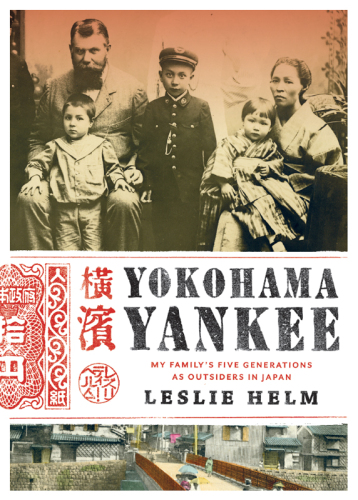
Yokohama Yankee
My Family's Five Generations as Outsiders in Japan
کتاب های مرتبط
- اطلاعات
- نقد و بررسی
- دیدگاه کاربران
نقد و بررسی

April 1, 2013
Helm was the Tokyo correspondent for the Los Angeles Times when he realized that the majority of the articles he had written were "critical of Japan in some way." This was surprising considering Helm was born in Japan and is part Japanese himself. In this lovingly researched memoir, he sifts through five generations of Helms living in Japan. The first, Julius, arrived in Japan by way of Germany in 1869. Having missed his boat to China by "the length of nose," Julius whimsically "booked passage on the next ship, which happened to be headed for Yokohama." After a brief stint training former samurai to fight like "Prussians", Julius married a Japanese woman, a highly unusual arrangement for the time. The Helm family story certainly wends an interesting course through historyâfrom the Meiji Restoration through the World Warsâhistory buffs will relish Helm's painstaking detail and impressive command of the material. Some of the most endearing and personal scenes interwoven throughout the book are of Helm and his wife's process of adopting two Japanese children, Mariko and Eric. Through joys and anxieties, the present-day Helms examine what family ties really mean.

Starred review from June 1, 2013
This marvelous and handsomely produced memoir is something of a detective story investigating the mysteries of both family and Japan. Starting in the 19th century, five generations of Helms lived, did business, and raised their families in Japan. Born in 1955, the author left the country on hard terms with his father and with Japan when he came to the United States for college. His father, Donald Helm, had served in the U.S. Army in World War II and returned to Japan during the occupation. He had hopes of becoming a scholar, but when he took over the family business in Yokohama, he and his marriage turned sour. Leslie eventually returned to Japan as a correspondent for Business Week and the Los Angeles Times, but it was only after his father died, and the younger man adopted two Japanese children, that he delved into his complicated history. He writes frankly and poignantly of coming to terms with his family and with Japan's confused racial attitudes. VERDICT A lovely, unsettling family story and a vivid traversal of modern Japanese history that will impress the jaded Japan scholar and inspire the curious general reader or memoir fan. Recommended.--Charles Hayford, Evanston, IL
Copyright 2013 Library Journal, LLC Used with permission.

























دیدگاه کاربران